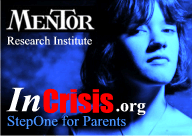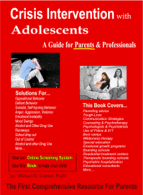By: Michael Conner, Psy.D What is the Purpose of Educational Consulting and Intervention Services?The purposes of intervention and educational consulting are
Why use an Educational Consultant?
What is an Independent Educational Consultant?
When do Parents and Professionals Need Educational Consultants?A growing number of parents with teenagers are searching for private behavioral intervention and school programs for help. They need help because there is an increasing number of teenagers have emotional, psychological, behavioral, school or substance abuse problems. Many public and private school are simply not providing the help that children need to learn, grow and feel good about themselves. In absence of appropriate supervision and healthy self-esteem, students are dropping out of school, bonding with other kids who have problems, turning to drugs, and becoming involved in unsafe activities that feel more rewarding and worthwhile. Fortunately, there there are thousands of school and intervention programs. Unfortunately, many of these "schools" and "programs" act unethically, are not safe or may do more harm than good. Even schools and program that have good reputations are not necessarily appropriate for your child. Some schools and programs have earned good reputations a long time ago, but programs change and reputations may no longer be deserved. Many parents make the mistake of trying to find the best program for their child without the necessary information or professional guidance and support. When you call a private school or program, they will either tell you they can help or they can't help. If they can help, only a few will tell you about a school that is better or more appropriate for all of your needs. What Problems do Parents Bring to Educational and Psychological Consultants?Parents are usually overwhelmed with information and decision factors when they are exploring school and intervention programs. If there is a crisis involved, the situation is even more distressing. Very few parents know how to tell if a program is appropriate or not. Research and published materials on programs are simply not adequate and the results of parent surveys are never enough to assure that your child's needs will be taken care of. In many cases, children need some form of crisis intervention, psychological and educational evaluation, as well as a referral to an appropriate school or intervention program. Previous evaluations and services may have been inadequate or incomplete. Parents need objective advice and information as well as commitment to their family. Intervention, therapeutic and educational programs vary considerably and there are a tremendous number of programs. Programs vary tremendously in terms of
In many cases, an intervention is necessary before students can return home or go to a private school that can address any special educational needs. Interventions may involve screening, runaway location, crisis stabilization, clinical and educational evaluation, developing treatment plans, monitoring, and educational planning. What are the Qualifications of an Educational Consultant?
What Services Should a Psychological and Educational Consultant Provide?At the very least, educational consultants should,
Copyright 2004 - 2011, Michael G. Conner |


